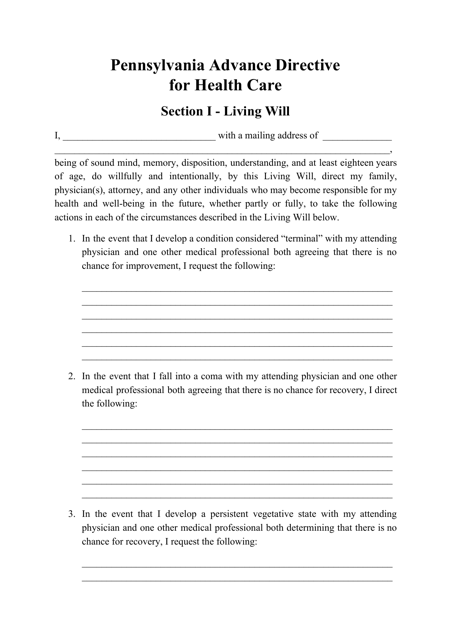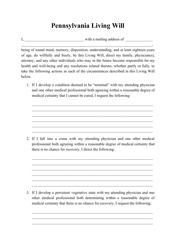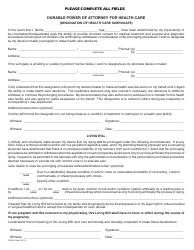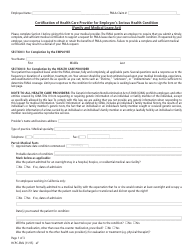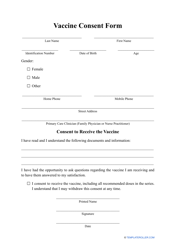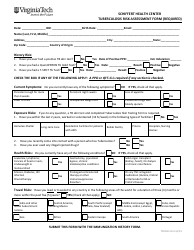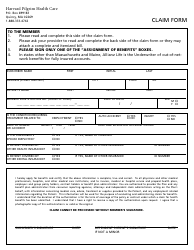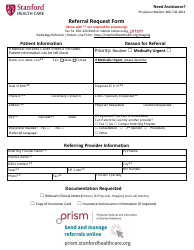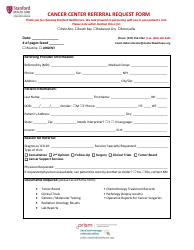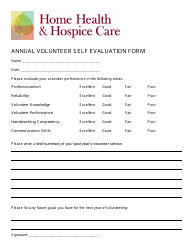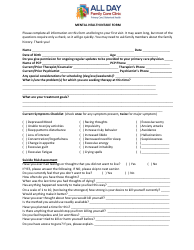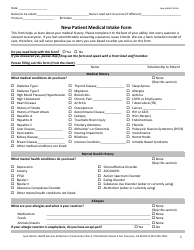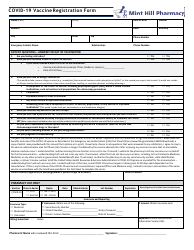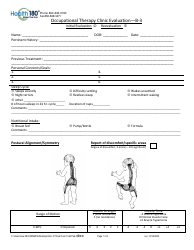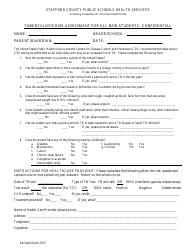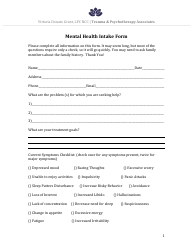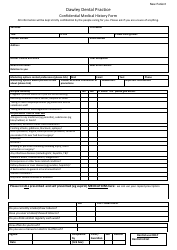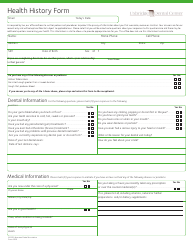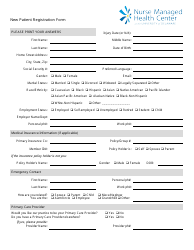Advance Directive for Health Care Form - Pennsylvania
A Pennsylvania Advance Directive is a revisable set of written instructions about future medical care that take effect in cases when a patient becomes unable to make decisions for themselves. The purpose of the form is to let an individual plan their medical treatment in advance. Download a ready-made version of the Advance Directive through the link below or make your own with our customizable template.
The form lists decisions on life-sustaining medical procedures and about the specific kinds of treatment the individual may or may not wish to receive and can be used to elect a spouse, relative, friend or attorney as a decision-maker in case the individual is unable to make their own decisions because of an illness, accident or incapacity.
The main difference between a Pennsylvania Advance Directive and a Pennsylvania Living Will is that a Living Will - also called a "directive to physicians" - is one form of Advance Health Care Directive. It's more limited in nature and only state a patient's wishes for end-of-life medical care. The document is defined by Chapter 54 Section 5422 (Exclusive, continuing jurisdiction) of the Pennsylvania Consolidated Statutes . It is necessary to have the document signed by two (2) witnesses.
What Is a Pennsylvania Advance Directive?
An Advance Directive is a legal document by which an individual appoints a proxy to make health care decisions for when they are no longer able to and to administer or withhold treatment and procedures based on their previously stated wishes. Advance Directives include two separate forms:
- A Living Will (a written statement listing decisions about life-sustaining procedures in the event of a terminal condition);
- A Durable Power of Attorney for Health Care (a document appointing an attorney-in-fact to make medical decisions for the individual).
The attorney-in-fact should meet the following criteria:
- The health care proxy - or agent - must meet the state's legal requirements.
- The individual's doctor or a member of their medical care team may not be selected as a proxy.
- The elected individual should be trusted to be the patient's advocate in any disagreements about their care.
How to Write an Advance Directive in Pennsylvania?
Making an Advance Care Directive in Pennsylvania usually features the following steps:
STEP 1 - Elect a health care proxy - or agent - to make medical decisions on your behalf. Be sure to choose a person willing to respect and follow your wishes
STEP 2 - Write down your wishes regarding any limitations in medical treatment. Specify whether you agree to be on a dialysis machine, extracorporeal membrane oxygenation (ECMO) machine, receive CPR or take antibiotics to treat infections
STEP 3 - Make decisions regarding the possibility of organ and tissue donation and state your preferences regarding burial and the disposition of remains.
STEP 4 - Keep the original signed and certified form, hand a copy out to your agent and ask your doctor to keep a copy of your document with your medical records.
